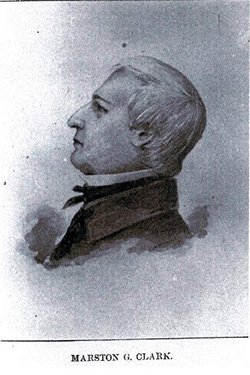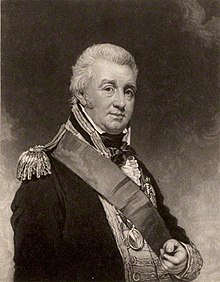BURLINGTON NURSERY.
For
sale, an extensive collection of upwards of one hundred and thirty kinds of
APPLE TREES, of which the following are of sizes larger than are usually
offered for sale, at 12 cents
each, delivered at the Nursery - with the additional charge of freight and
package, if sent abroad by the packets.
AMERICAN
TABLE APPLES
Early Bough, Dumpling,
Prince's Harvest, Monstrous
Pippin,
Summer Queen, weighs
27 oz.
Large Codling, Michael
Henry Pippin
Summer Pippin, R.
Island Greening,
Large Sweeting, Burlington
Greening,
Large Fall Pippin, Roman Stem,
Holland Pippin, Black,
Trenton Redstreak, Newark
King,
Shippen's Russeting, Brownite,
Doctor, Lady
Finger,
Morgan, Pennock,
Wine, Vandevere,
Monstrous Bellflower, Sweet
Pippin,
Collet, Quince
Apple,
Flushing and Priestly,
Esopus Spitzemberg, Lobb,
Swaar, Winter
Permain,
Seek no further, Rambo,
Pompion, Bellflower,
Pound, Prince's
Everlasting,
Irish Apple, Evesham
large Rus-
Romanite, seting,
ENGLISH
TABLE APPLES
Loans Permain, Double
bearing Crab,
Nonsuch, Evergreen
striped
Olive, Crab,
Margill, Non
Pariel,
Ribstone Pippin, Pearson's
Pippin,
Royal Russet,
FRENCH TABLE APPLES.
Pomme d'Apis or La- Pigeon,
dy Apple, a much ad- Domine,
nired dessert fruit. Fenoullet
Gris,
Red Calville, Cr[aa]m,
Large Reinette, Capendu.
Gros Faros,
AMERICAN
CIDER APPLES.
Harrison, Royal
Pearmain,
Campfield, Catline,
Poveshon, American
Pippin,
Granniwinkle, Ruckman's
golden
Coopers Russeting, Pearmain,
Wine Sap, Curlis
Sweet,
Greyhouse, Wetherill's
Sweet,
Hewe's Crab, Cann
Apple,
Spice, Orange.
French
Metoisee Crab.
ENGLISH
CIDER FRUIT.
Cockagee, Catsbury,
John, Whitesour,
Golden Rannet, Styre,
Woodcock, Hagloe
Crab,
Royal Wilding, Redstreak,
An extensive variety of one hundred foreign
and
native Pears, and native Pears 20
cents
Italian Mulberries 12
Quinces 18
Georgia and Athenian Poplars, large
size, 12
Orders
sent by mail will be carefully executed.
DANIEL
SMITH & CO.
Burlington,
(N. J.) Feb 20, 1814




